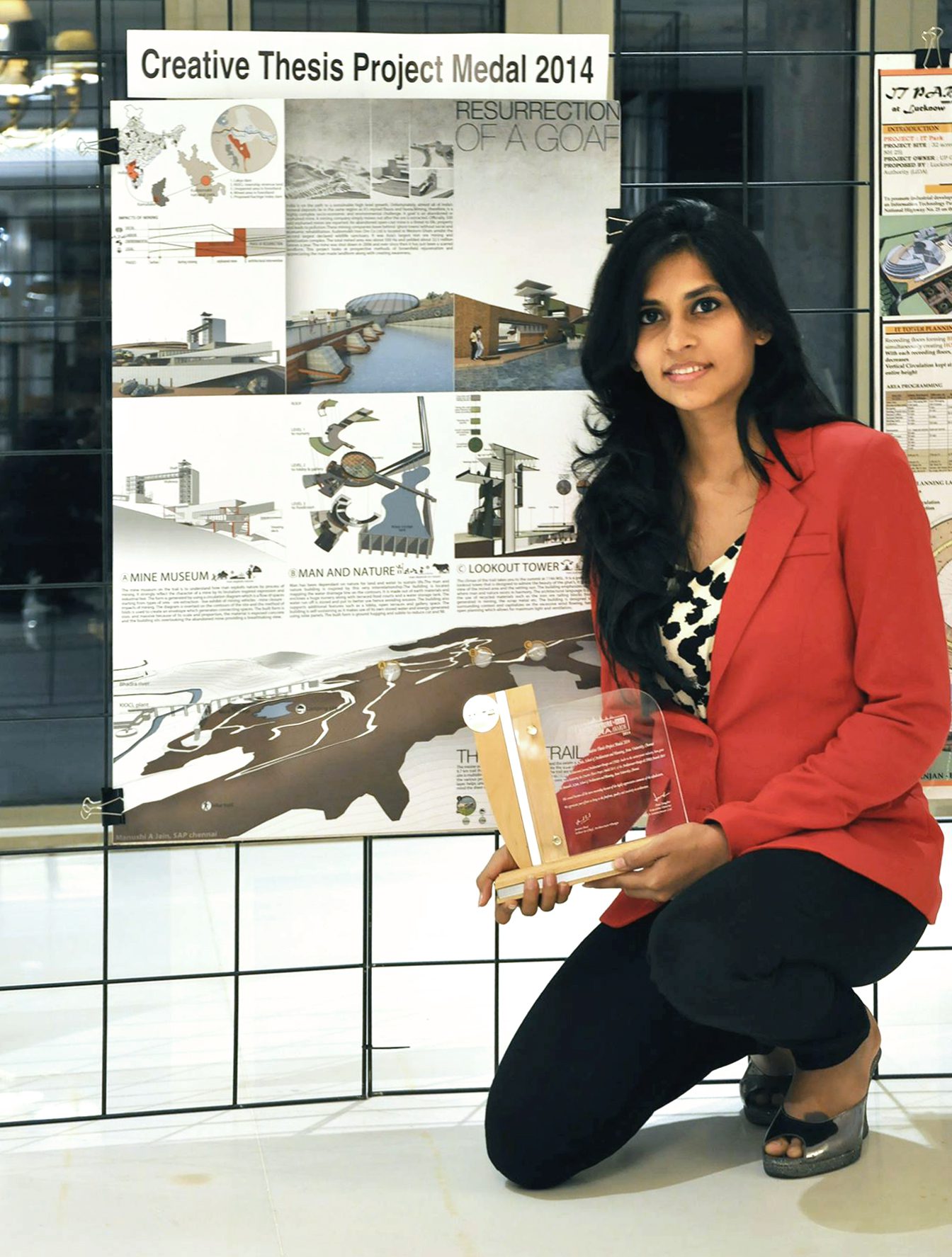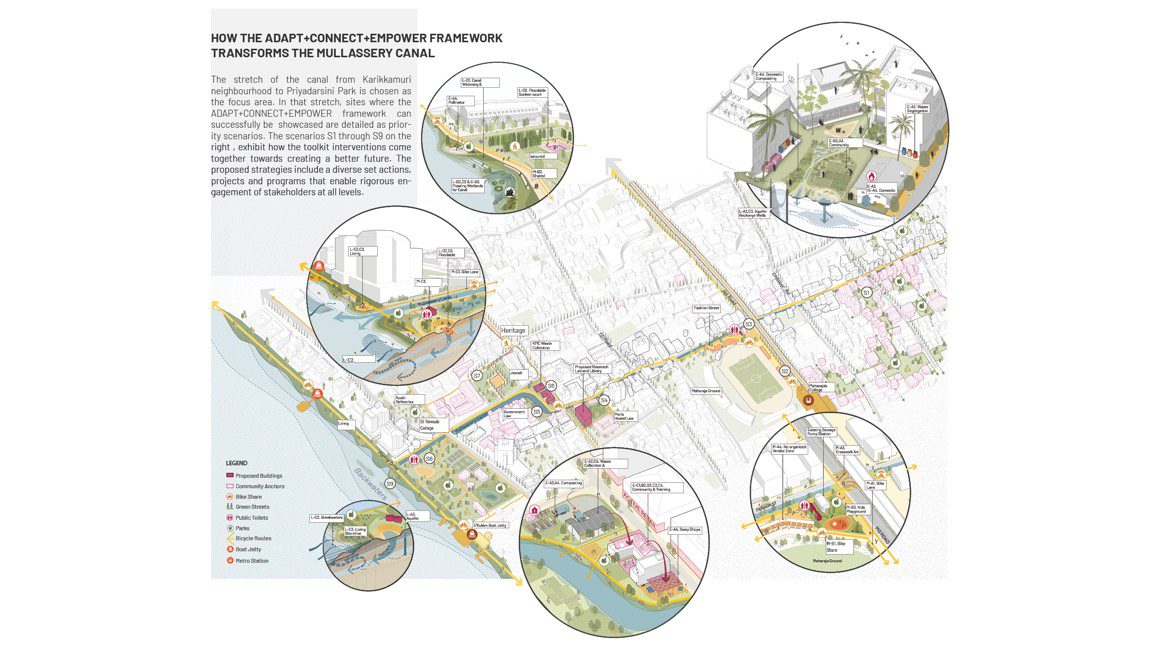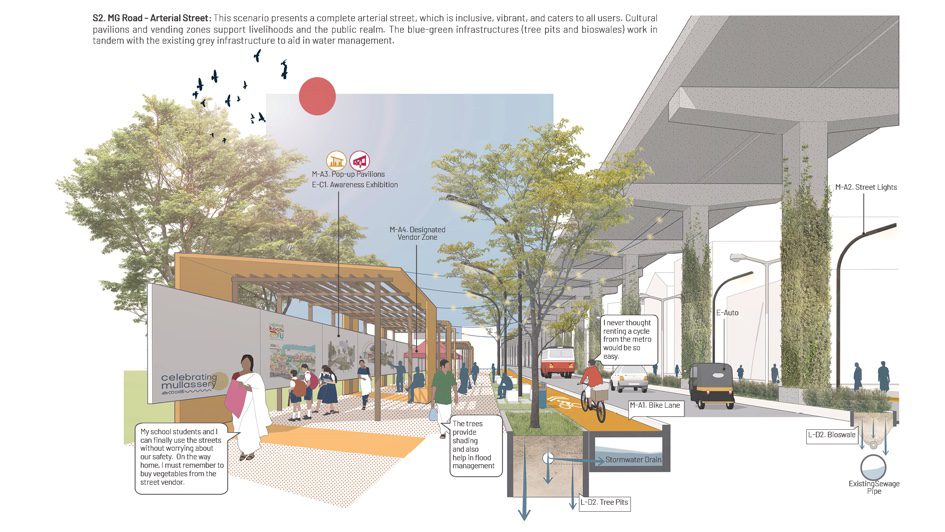(August 6, 2022)“While I was in New York, I was designing homes for super rich people. I worked from two million to 20-million-dollar homes but I always felt that something was missing,” Manushi Ashok Jain tells Global Indian. This vacuum led her to shift focus after two years and experiment with her profession, transitioning into an urban designer. “That is where I found fulfillment.”

Manushi Ashok Jain, cofounder and director, Sponge Collaborative
The architect and urban designer is the co-founder and director at Sponge Collaborative that she started with three other experts in the domain. Two of them also happen to be her former colleagues at Sasaki, a Boston-based organisation that introduced her to good practices in urban designing.
Coming closer to purpose
“Sasaki played an instrumental role in shifting my focus to work with a purpose,” she recalls fondly the place that was her second home for over a year, before she relocated to India. “I always had the larger goal to work for cities of India in the space of urban designing,” she adds.
Just before the pandemic, when Afghanistan was still not under Taliban rule, she found herself working in a World Bank funded project for Sasaki. It focussed on the strategic development framework of five major cities in Afghanistan. She was part of the team that came up with a pioneering document in collaboration with experts and the World Bank on how best those five major cities could be modelled for a better future – four to five decades down the line. “Though I never travelled to Afghanistan but as part of the team, I got the opportunity to engage with former President Ashraf Ghani. His office was closely involved in the project,” she says about the experience that shaped her future course of action.

“Sasaki is rooted in communal, ecological understanding and how development has to be sensitive with low impact but big change,” qualities that Manushi has been imbibing.
The turning point
The gold medallist and topper in B.Arch with a master’s in architecture and urban design from the Pratt Institute, New York was looking for that final push to return to India. When she won the EnteKochi competition, she knew “this was it”.
It was the year 2020, Manushi had formed a consortium of nine teammates to participate in EnteKochi, a national-level urban design competition to find sustainable solutions to design the future city of Kochi. The team presented a solution emphasising the potential of blue-green infrastructure as a relatively low-cost alternative to grey infrastructure for prevention of flooding. “Our entry was placed first among 122 national and international design firms,” says the woman who returned to India the same year.

Chennai girl working for its better future
Though she was born in Ahmedabad, she is a Chennai girl at heart – having grown up in the city. “I have always been a person who is sensitive towards one’s surroundings. For me, the ultimate joy is to contribute in any way as possible for betterment of other people’s lives,” says the urban designer who has been working on sustainable solutions for Chennai.
In 2021, Sponge Collaborative was chosen for an initiate by Greater Chennai Corporation to come up with Chennai’s first sponge park, an open space that leverages nature to delay, store and infiltrate surface run off during cloudburst events and serves as a recreation area during dry months, having multiple co-benefits. They are also developing Chennai’s first Climate Interpretation Park commissioned by the Chennai Metropolitan Development Authority, as a learning laboratory to understand native landscapes and ecology.

“Chennai is a city that goes through flooding and drought cycles. We are utilising open and underutilised spaces and unlocking the potential of nature so that it can be leveraged to reduce flooding through a series of interventions which we call sponge interventions,” she elaborates.
Her team had come up with the Sponge Handbook for Chennai which is being referred to in schools and organisations. “It’s an open-source document and the pedagogy has been adopted due to its holistic vision and framework for the future.”
Through multi-disciplinary strategic planning and design, Manushi and her team have been making a difference. “We are doing a lot of work in the realm of public infrastructure, nature-based solutions, integrated mobility strategies and women and children safety in public spaces,” she says.
Interspersing profession with purpose
As Indian cities are vulnerable to climate change, Manushi’s focus is on solving the problem through design and promoting integrated resiliency planning with a vision. “I am not alone. We are three other partners,” she emphasises. Her business partners Praveen Raj, Sourav Kumar Biswas and Shreya Krishnan have collectively helped realise integrated housing, mobility and infrastructure solutions that are socio-economically and environmentally friendly in more than 60 cities around the world.
Since the concept of urban designing as a profession is not very clear in India, she explains “we bring valuable insights and solutions to India’s urban challenges through system thinking that involves green system (ecology), blue system (hydrology), community system, data driven analysis etc, instead of just focussing on aesthetics.”
The urban designer who loves hiking and travelling has been striding high in her purposeful journey. By making it to the Forbes 30 Under 30 list, her initiatives have started to get recognised.
- Follow Manushi Ashok Jain on LinkedIn




